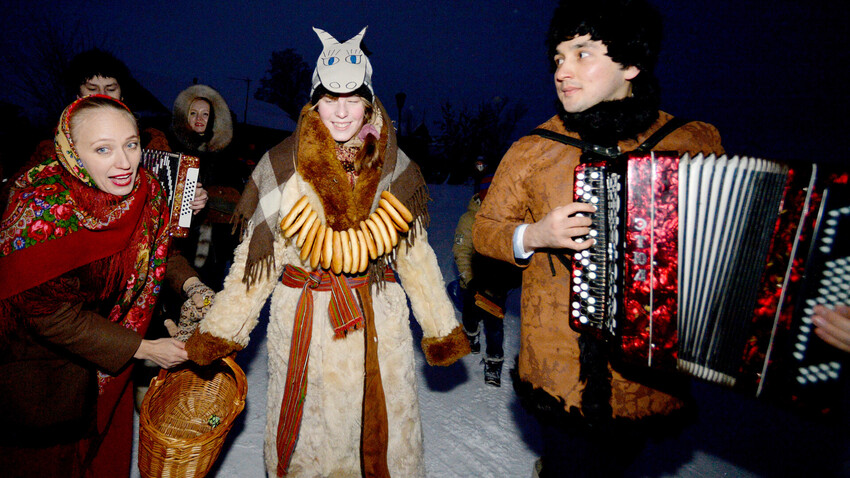
The tradition of ‘kolyadki’ goes back to pre-Christian times. The exact origin of the word is not known. According to one account, it comes from the Latin ‘calendae’, meaning "the first day of the month". According to another, it originates from the name ‘Kolyada’ - the pagan god of the newborn sun, who takes over from Avsen, the deity of the old sun. The feast day of ‘Kolyada’ was celebrated after the winter solstice.
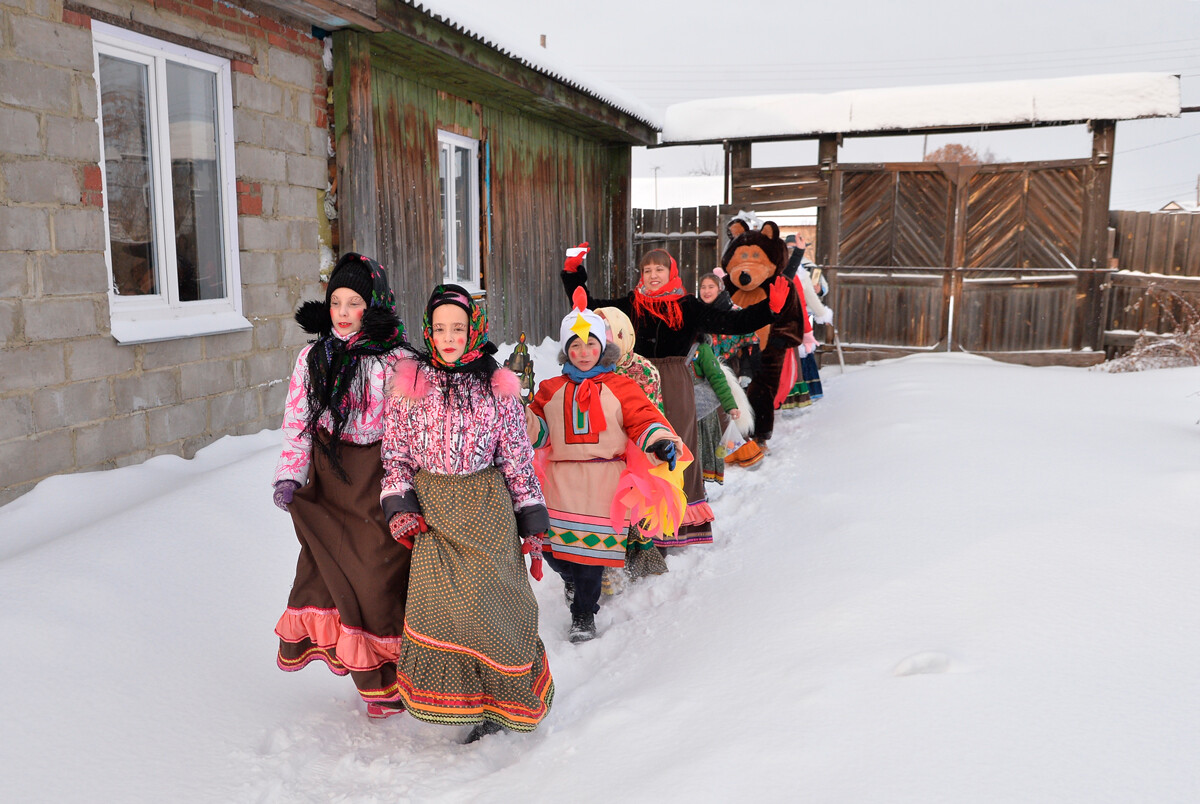
It was believed that, during this period, the dividing line between the real and the supernatural (in other words, between our world and the world beyond) becomes very fine and all sorts of otherworldly spirits can enter. Therefore, during the ‘kolyadki’ period, participants tried to make a lot of noise and changed into unusual and scary outfits, such as sheepskin coats with the fur facing out or tattered clothes while wearing horns on their heads and masks made of birch bark or coarse cloth. They used the costumes to scare away uninvited guests or - conversely - to call on their departed ancestors to help with a good harvest.
A merry procession of bears, bulls, goats, mermaids and other personages walked along the street. Outside the windows of houses, they sang ‘kolyadki’ - special songs appealing for a good harvest and wishing well-being on the owners of the house. In return, the latter offered them various snacks. On occasion, the lyrics of the ‘kolyadki’ included a list of what the performers wanted to be given: pigs' trotters, bread or cooked cereals.
With the advent of Christianity, the pagan tradition gave way, but it didn't completely disappear and was only transformed. ‘Svyatki’ began to be celebrated over the 12 days regarded as festive and people were not allowed to marry during this period. And, in the Russian Empire during Christmas and ‘Svyatki’, it was prohibited to stage ‘kolyadki’ in the old style - i.e. no idolatry or "seductive singing" were permitted.
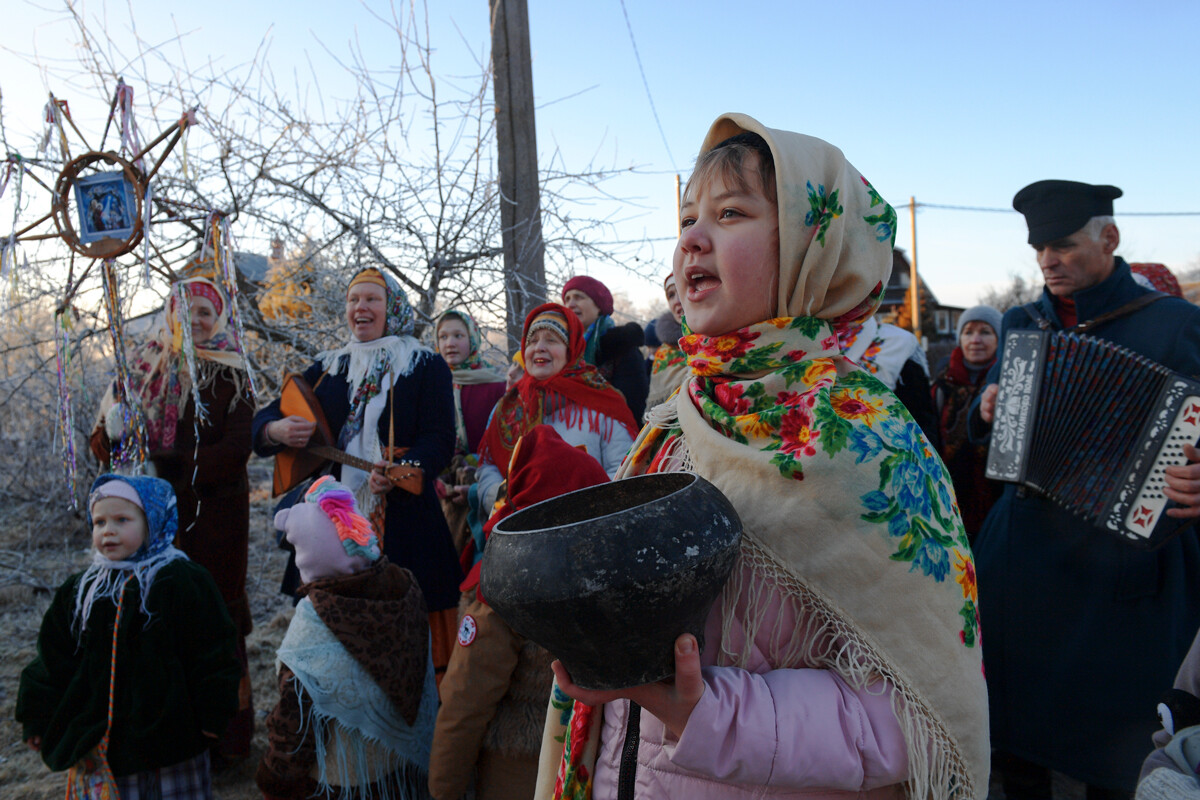
The pagan tradition was replaced by the Christian one. The house visiting continued, but now those taking part sang carols - songs about Christmas. The carolers continued to dress up in unusual carnival costumes and were often led by a star-bearer, who carried a stick surmounted by a star intended to recall the one above Bethlehem. In the houses they visited, they were treated to various delicacies: For instance, pies and ‘kutya’ (a dish made of whole grains of wheat with honey and nuts). The treats they got for their singing were not shared individually - they were eaten by everyone together.
“Kolyada, kolyada,
On the second day of Christmas!
Who serves us a pie
Will have a well-stocked farmyard.
Who doesn't give us a pie
Will have an old graying mare
And an unkempt grave!”
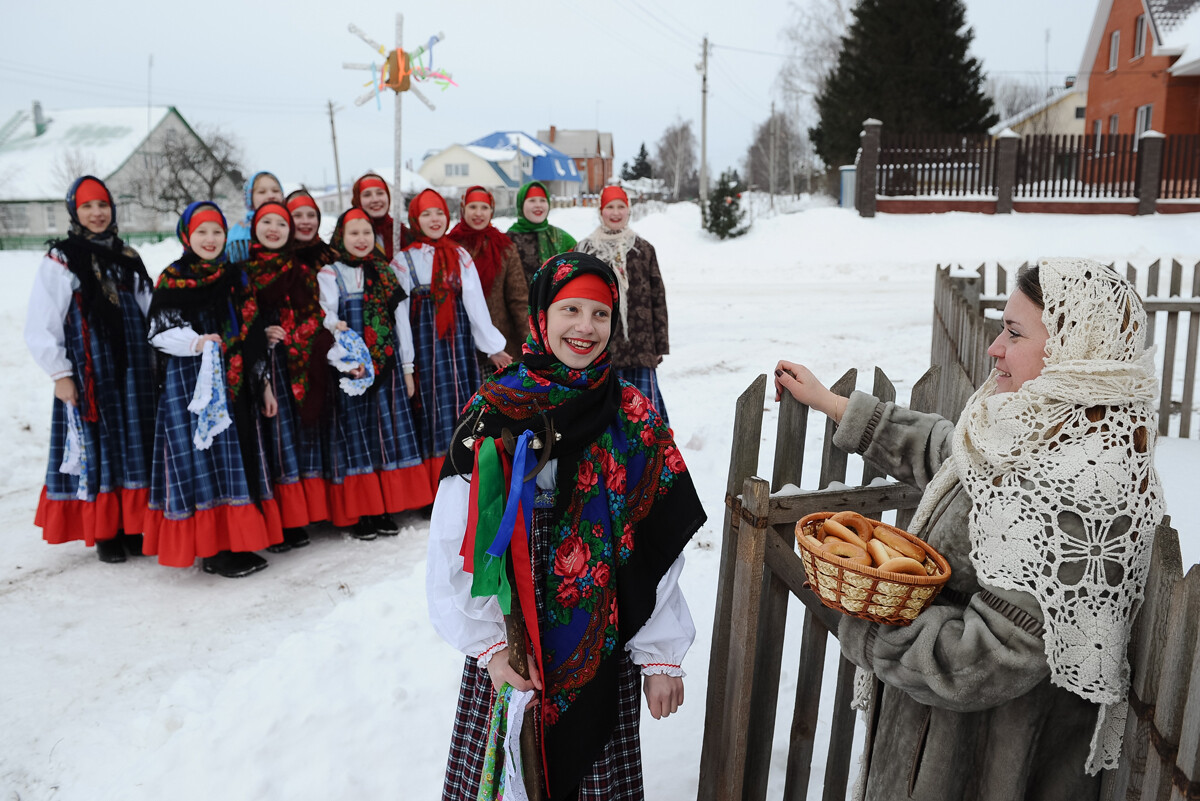
The wassailing took place in different groups: adults separately from children. The more carolers came to a house, the better would the following year be for its master and mistress. The songs could simultaneously glorify Christmas and express best wishes for a bumper harvest. Those who went "masked" - in other words, dressed as an animal or some kind of supernatural being - had to immerse themselves in a consecrated ice hole at Epiphany. It was believed to be a way of washing off the sin of idolatry.
“When early in Jerusalem the bells rang out
Rejoice! Rejoice, O Earth!
The Son of God was born!
We come with good tidings, Sir
Rejoice! Rejoice, O Earth!
The Son of God was born!
The Blessed Virgin bore a son
Rejoice! Rejoice, O Earth!
The Son of God was born!”
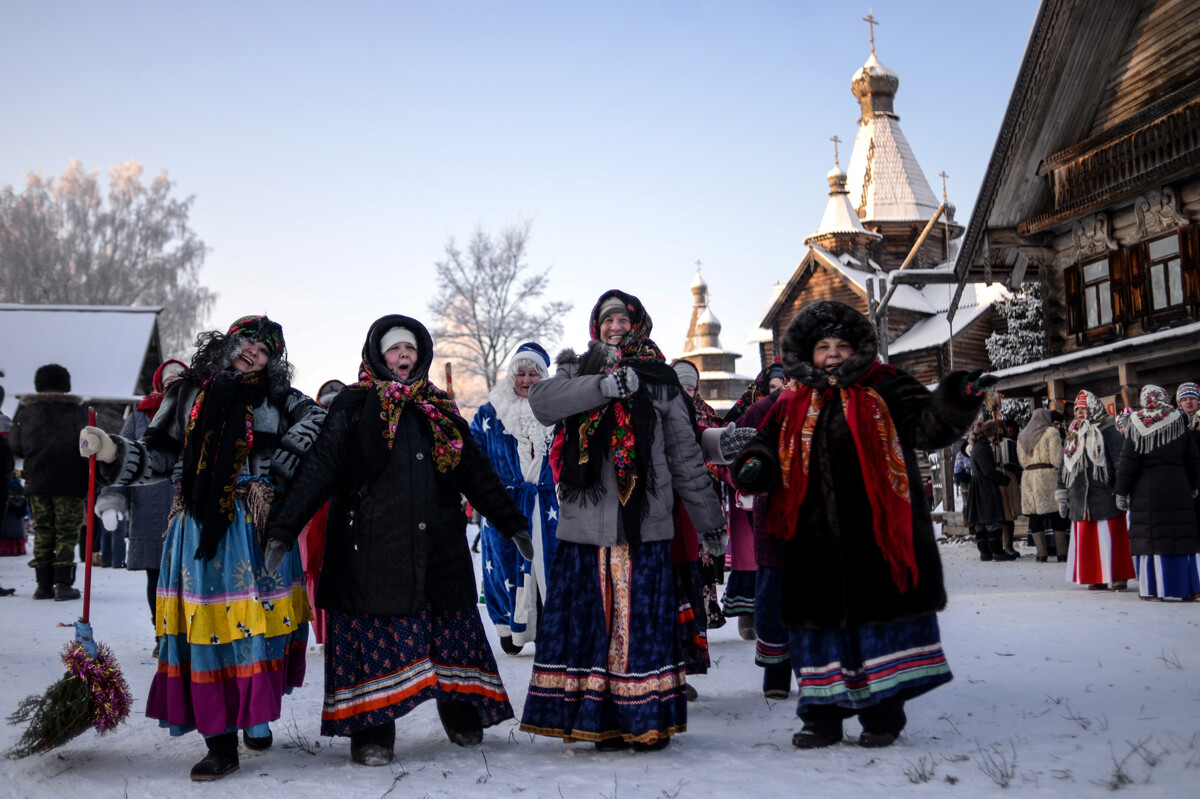
Other countries also had their Christmastide songs - for instance, Poland, Czechoslovakia, Bulgaria and Romania, but the singing and revelry were confined to Christmas Eve and Western European countries held their caroling on Epiphany Night. In the Orthodox and Catholic traditions, the familiar Christmas songs are carols, which glorify the birth of Baby Jesus.
“This holy night,
This night of salvation
Has proclaimed to all the world
The mystery of Divine Incarnation.”
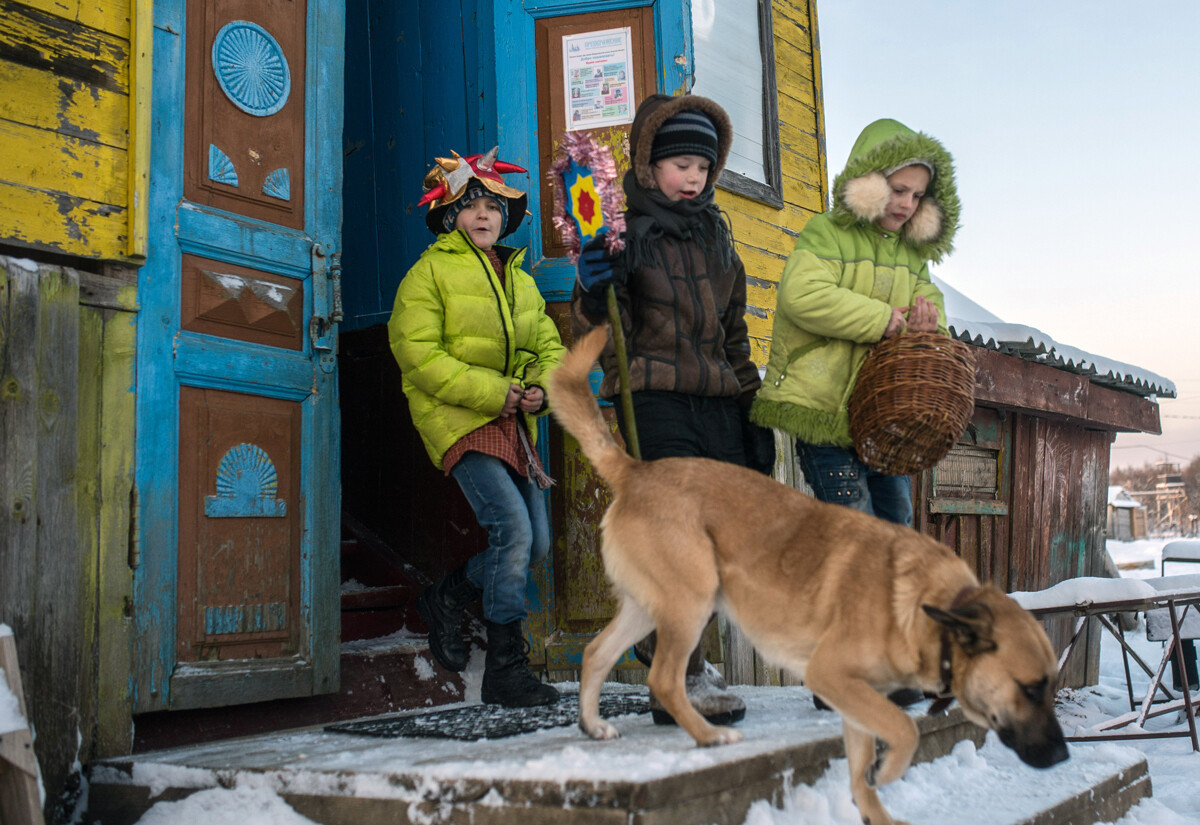
Today, the wassailing tradition survives very much as a folkloric ritual. It's hardly going to cross anyone's mind to go wassailing around a multi-apartment residential block. And even in the countryside, the ancient ritual isn't often remembered. But, the Christmas songs continue to be performed, including by contemporary musicians.
Dear readers,
Our website and social media accounts are under threat of being restricted or banned, due to the current circumstances. So, to keep up with our latest content, simply do the following:
If using any of Russia Beyond's content, partly or in full, always provide an active hyperlink to the original material.
Subscribe
to our newsletter!
Get the week's best stories straight to your inbox